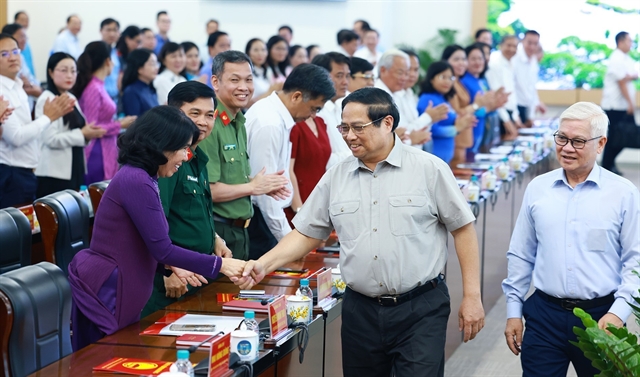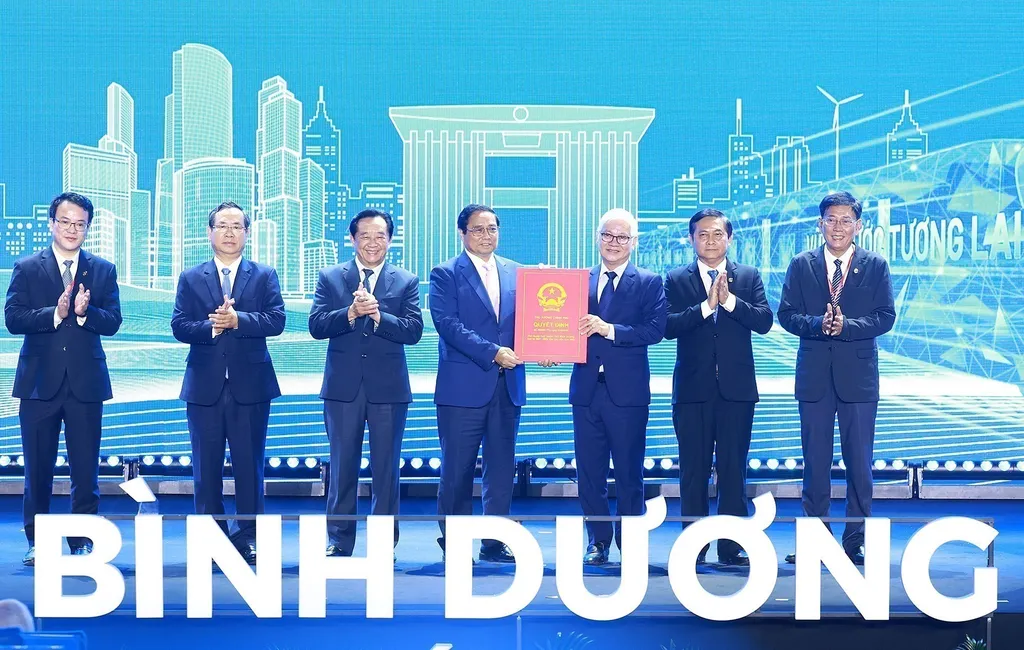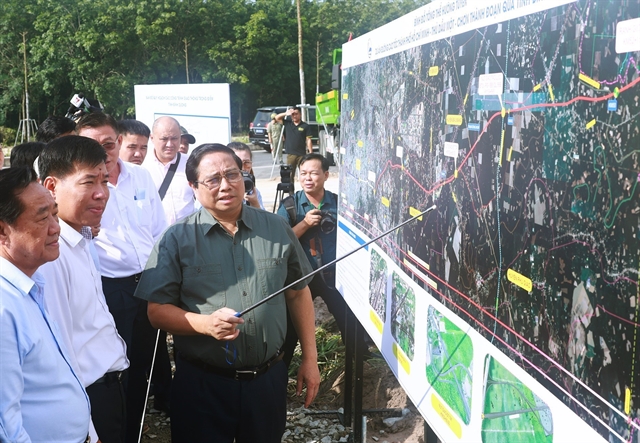 Politics & Law
Politics & Law

 |
| Prime Minister Phạm Minh Chính hands over the decision on the approval of Bình Dương master plan in the 2021-30 period with a vision to 2050 to the local leader. — VNA/VNS Photo Dương Giang |
BÌNH DƯƠNG — Prime Minister Phạm Minh Chính has urged Bình Dương's authorities to strengthen regional economic ties, promote a green and digital economy, and build cutting-edge and sustainable industrial parks.
PM Chính was speaking at the conference announcing Bình Dương's Master Plan for Development in the 2021-30 period with a long-term vision stretching to 2050 on Thursday.
He noted that Bình Dương had experienced significant growth in the past three decades, transforming from an agriculture-geared province into a thriving industrial hub and a magnet for foreign investors.
With an income per capita of VNĐ172.5 million ($7,005) in 2023, Bình Dương has significantly outperformed the national average and established itself as one of the top ten provinces in Việt Nam in terms of economic growth, FDI inflows, and urbanisation.
He urged authorities to implement the plan at a fast pace but ensure the implementation aligns with the national, regional, and sectorial planning frameworks.
"Bình Dương's authorities must leverage public-private partnerships and foster investment in infrastructure to unlock its full potential," said the PM.
 |
| Prime Minister Phạm Minh Chính examines the map of the HCM City-Thủ Dầu Một-Chơn Thành Expressway project on Thursday. — VNA/VNS Photo |
He suggested that Bình Dương's authorities focus on the five strategic measures highlighted in the Plan, and allocate more financial resources to fostering regional cooperation, enhancing connectivity, and integrating into global supply chains.
He emphasised the critical role of human capital and urged the authorities to invest heavily in education and training and implement measures to improve literacy and attract talent.
He also stressed the need for accelerating administrative reforms and uplifting business environment indicators to improve the investment climate to attract large-scale investors.
He also suggested building a planning centre in the province to serve as a hub for public engagement, knowledge sharing, and trade promotion. In the centre, planning documents would be published to keep people aware of the Plan.
He called for close coordination among ministries and agencies to ensure the effective implementation of the Plan, highlighting the Government's commitment to creating a favourable business environment based on the principles of mutual benefits and shared risks.
On the same day, the PM also visited the Electric Energy Show 2024 and Automation World Vietnam 2024 and conducted an on-site inspection of the province's HCM City-Thủ Dầu Một-Chơn Thành Expressway project.
The Plan was approved by the Prime Minister on August, covering five cities and four districts under the management of Bình Dương Province.
Its overall goal is for Bình Dương to become a centrally-governed metropolis and a Southeast Asian powerhouse by 2030, taking the lead in innovation, technology, infrastructure, and green growth.
Another goal is to improve its people's quality of life, build a thriving and modern society, and strengthen national defence and public safety.
The province also aims to achieve an annual GDP growth rate of 10 per cent and a per capita income of US$15,800, with the industrial and construction sector being the backbone, accounting for 64 per cent of its economy, and the urbanisation rate reaching approximately 90 per cent.
The province also aims to reach a population of 4.04 million in 2030, with a highly skilled workforce, quality education, and improved healthcare. Key indicators include a labour force training rate of 87 per cent, a national standard attainment rate for schools of 80 per cent, and a doctor-to-population rate of 19 per 10,000 people.
Coinciding with the release of the plan, Bình Dương's authorities also broke ground on several major infrastructure projects, including Ring Road 4 and HCM City-Thủ Dầu Một-Chơn Thành Expressway.
These projects are expected to be the key catalysts for the province's economic growth in the short term. — VNS




